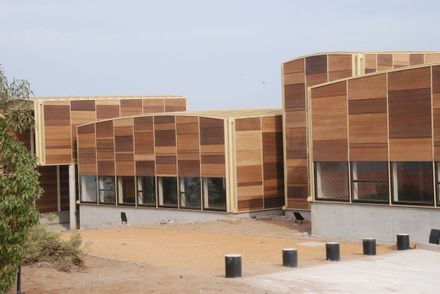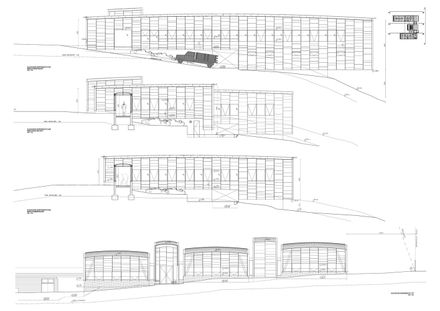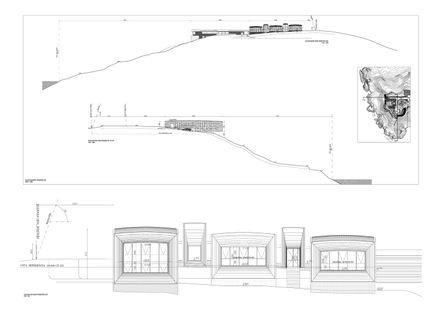
Coastal Marine Research Station
ARCHITECTS
Martin Hurtado Arquitectos
LOCATION
El Tabo, Chile
CATEGORY
Research Center
YEAR
2010
CONSTRUCTION
Lenti
COLLABORATORS
Sebastián Erazo, Iván Salas, Andrés Suarez, Raimundo Arteaga, Benjamin Covarrubias, José Manuel Casas
STRUCTURES
Madera Laminada y Hormigón Armado
ENERGY EFFICIENCY
Bustamante & Encinas
TECHNICAL INSPECTION
Decon U.c.
SITE AREA
2,4 Há
SEA WATER
IGD Chile
WEAK CURRENTS
Dirección de informática U.C.
WALLA
Reinforced concrete, wood partitions
LAMINATED WOOD
INGELAM
PLUMBING
Ruz&Vukasovic
ELECTRICAL
Proingel Ltda.
HVAC
A&P Ingeniería
ORIGINAL SITE AREA
696,47 m2
The project is understood to complement existing facilities in Las Cruces for scientific research and post-doctorates.
The current building responds to the needs of scientists with prolonged residences according to the duration of their respective investigations.
COMMISSION
The commission asked for about 1000 m2 of new facilities immediately adjacent to the north of the existing building, considering the complementary technical services underground and in the order established by the previous construction, with a central square surrounded by work and living facilities.
For the program, three areas were requested: research area, multipurspose area and the International Laboratory for Global Change (LINC-Global).
Considering this and the shape of the lot (a peninsula with steep slopes, declared a nature reserve with human exclusion, enclosing a 1 km area of coastline in 1982, being one of the first of its kind in the world), the project has three volumes parallel and far between, which privilege the views of the sea (the goal of work and research), each corresponding to the requested areas, so as to make autonomous the volumetry of the program and gain freedom to adapt to the specific needs of each section.
These volumes are made up of a sequence of plywood frames supported on concrete bases partially buried in the slope.
These bases house technical facilities for the building, such as Filtering Area, Carpentry Workshop, storage, and Diving Pañol.
PURPOSE
Unlike the existing building, the proposed building meets the requirements of the new Marine Biology undergraduate degree from Universidad Catolica.
As its headquarters are located in Santiago, the undergraduate facilities of the Coastal Marine Research Station have an occasional use, with a period of greatest use in the months between November and March, not exceeding 40 students using the facilities at any one time, including research laboratories and complementary laboratories.
MATERIALS
This project emphasizes the use of Fiber-cement Permanit Wood exterior cladding from Pizarreño.
This exterior cladding solution is part of a dry construction and rapid execution system, which generates thermal, fire, and acoustic resistances.





































